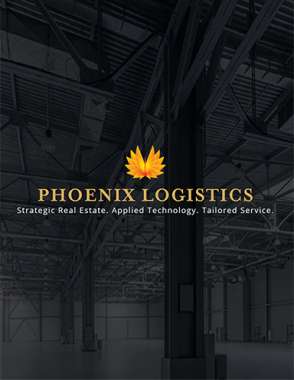Will Multi-Story Warehouses Become the Norm?

The warehouse challenges are complex in primary markets, where ecommerce and omnichannel retailers need access to space that allows them to provide same-day, one-day, and two-day deliveries to large swathes of customers.
The Industrial Real Estate Sector
As consumer shopping habits keep shifting online, the industrial real estate sector has struggled to keep pace.
The ecommerce boom drove a shortage of 300 million square feet of warehouse space by the end of 2021, while global supply chain disruptions have continually slowed the development of new inventory.
Even when building materials become readily available again, it will most likely take several years to clear the backlog of warehouse projects and provide enough new warehouses to meet market demands.
The warehouse challenge becomes even more complex in primary markets, where ecommerce and omnichannel retailers need access to space that allows them to provide same-day, one-day, and two-day deliveries to large swathes of customers.
Unfortunately, there simply isn’t enough available land to build new warehouses in these urban markets.
With these problems in mind, industrial real estate firms, architects, and developers have had to think more creatively about providing warehouse space in tight markets.
Warehouse Development is Looking Up
Since outward expansion isn’t feasible in urban environments, developers have begun looking to the sky instead.
Of course, cities have long used vertical space for offices, retail stores, and multifamily dwellings, but the idea of the multi-story warehouse took time to catch on.
Simply put, the amount of inventory stored in warehouses weighs much more than what one might find in a typical office or apartment building, and the extra cost and effort of reinforcing buildings to support that weight didn’t seem worth it.
Additionally, the increased traffic caused by a warehouse invites pushback from other commercial and residential tenants in the area.
With warehouse vacancy consistently below 4% and rents at record highs across the United States, pursuing development on a multi-story warehouse facility becomes easier to justify. Here are some factors that will influence a rise in popularity for multi-story warehouses:
- More bang for your buck. Multi-story facilities may cost more to build in general, but some of that cost gets offset in urban environments since the actual plot of land purchased is smaller. As industrial-zoned land prices continue to rise, building higher makes better financial sense. Urban warehouses may also provide additional revenue streams, such as advertising space on the building.
- Rising ecommerce demand. Many online sellers have turned to micro-fulfillment centers to store and move high-volume quickly in urban markets. For the same reason, many retailers can benefit from multi-story warehouses that can store a larger volume of inventory in a centralized location within the city.
- Consumer demand for sustainability. Using vertical space for storage helps to eliminate the number of individual parcels shipped into the city from outside locations. Reducing unnecessary traffic will help to reduce a fulfillment operation’s carbon footprint.
- Urban land shortages. Acquiring enough land to build a 500,000-square-foot (or bigger) fulfillment center in a major metropolitan area can prove nearly impossible. The unavailability of large plots of land means that vertical warehouses will eventually become one of the few options available for retailers trying to keep inventory within the city limits.
Building a multi-story warehouse may pose some challenges compared to a standard warehouse, such as regulatory hurdles, zoning issues, and higher construction costs.
However, multi-level warehouses are already fairly common in heavily populated areas outside of the United States, such as China and other parts of Asia. So, it is only a matter of time before the trend catches on in the U.S. as well. As architects and builders continue to build innovative new multi-story warehouses, the structures will undoubtedly become normalized in urban landscapes within the next decade.
About Phoenix Investors
Founded by Frank P. Crivello in 1994, Phoenix Investors and its affiliates (collectively “Phoenix”) are a leader in the acquisition, development, renovation, and repositioning of industrial facilities throughout the United States. Utilizing a disciplined investment approach and successful partnerships with institutional capital sources, corporations, and public stakeholders, Phoenix has developed a proven track record of generating superior risk-adjusted returns, while providing cost-efficient lease rates for its growing portfolio of national tenants. Its efforts inspire and drive the transformation and reinvigoration of the economic engines in the communities it serves. Phoenix continues to be defined by thoughtful relationships, sophisticated investment tools, cost-efficient solutions, and a reputation for success.
Article Topics
Phoenix Logistics News & Resources
4 Best Practices for Online Order Fulfillment In 2023 Is Industrial Real Estate Recession-Proof? 9 Tips for Offsetting Rising Parcel Rates Tips for Retaining Your Peak Season Temp Labor The Great Decoupling and What It Means for Industrial Real Estate How Does the Inflation Reduction Act Impact Industrial Real Estate? Not in My Backyard: Warehouse Edition More Phoenix LogisticsLatest in Warehouse|DC
Cambium is on a Quest to Breathe New Life Into Old Wood Record High in Container Production Expected for 2024 IBM Investing $730 million to Expand Semiconductor Plant in Canada Indiana Tests Futuristic Highway that Can Charge EVs While Driving Week in Review: Baltimore Bridge Price Tag, FTC Fines Williams-Sonoma, and More GXO and Conair Open Maryland’s Largest Distribution Center Robots are Enhancing Human Workers, Not Replacing Them More Warehouse|DC













